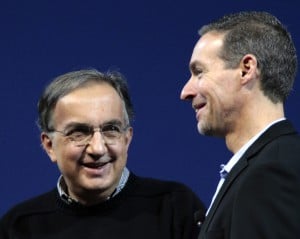
Fiat Chrysler’s safety processes and record continue to haunt the automaker as a New York judge is allowing a shareholder lawsuit about its safety record to proceed.
The shareholders accused Fiat Chrysler officials of artificially inflating the automaker’s share price by hundreds of millions of dollars from October 2014 and October 2015 by downplaying safety concerns.

U.S. District Judge Jesse Furman ruled that FCA’s statements made by those executives that in late 2014 – that the maker was “substantially” in compliance despite the fact it was in the midst of an investigation by the National Highway Traffic and Safety Administration due to safety issues – was reason for the suit to proceed.
Furman also permitted shareholders to pursue claims over the compliance disclosures Sergio Marchionne and Scott Kunselman, who was in charge of FCA U.S. safety operations.
However, he did dismiss claims against the automaker that it violated accounting principles by failing to set aside enough money to cover recalls it had reason to expect.
(Fiat Chrysler recalls 1.9 million vehicles worldwide. Click Here for the story.)

In a statement, Fiat Chrysler noted the judge dismissed “several of the more significant claims,” and that it will defend itself against the surviving claims.
Lawyers for the shareholders did not immediately respond to similar requests, according to Reuters news service.
(Click Here for details about the “unnatural acts” at Chrysler.)
The shareholders who filed the suit said the shortcomings materialized last year when the automaker paid $175 million of NHTSA fines, and took a roughly $670 million charge for recalls, Reuters noted.
Furman wrote in his decision that investors “could, and likely would” interpret Fiat Chrysler’s statements about its safety compliance as suggesting that it was in substantial compliance with “all” applicable regulations.
(To see more about Marchionne’s manufacturing revival, Click Here.)
Those statements could be misleading, given NHTSA’s investigation at the time, the automaker had begun closer monitoring of safety issues, and, “after all, only months later, FCA admitted to widespread noncompliance.”







